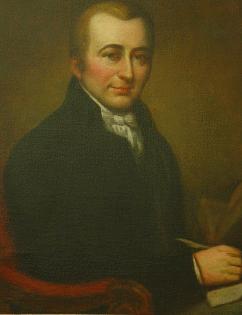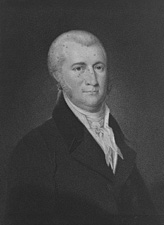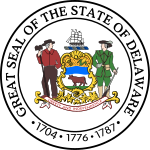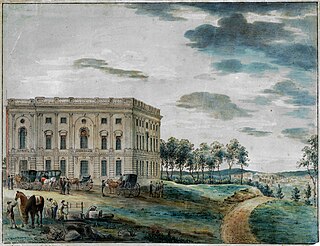
The Eighth United States Congress was a meeting of the legislative branch of the United States federal government, consisting of the United States Senate and the United States House of Representatives. It met in Washington, D.C. from March 4, 1803, to March 4, 1805, during the last two years of the first presidency of U.S. President Thomas Jefferson. The apportionment of seats in the House of Representatives was based on the Second Census of the United States in 1800. Both chambers had a Democratic-Republican majority.

The Ninth United States Congress was a meeting of the legislative branch of the United States federal government, consisting of the United States Senate and the United States House of Representatives. It met in Washington, D.C. from March 4, 1805, to March 4, 1807, during the fifth and sixth years of Thomas Jefferson's presidency. The apportionment of seats in the House of Representatives was based on the Second Census of the United States in 1800. Both chambers had a Democratic-Republican majority.
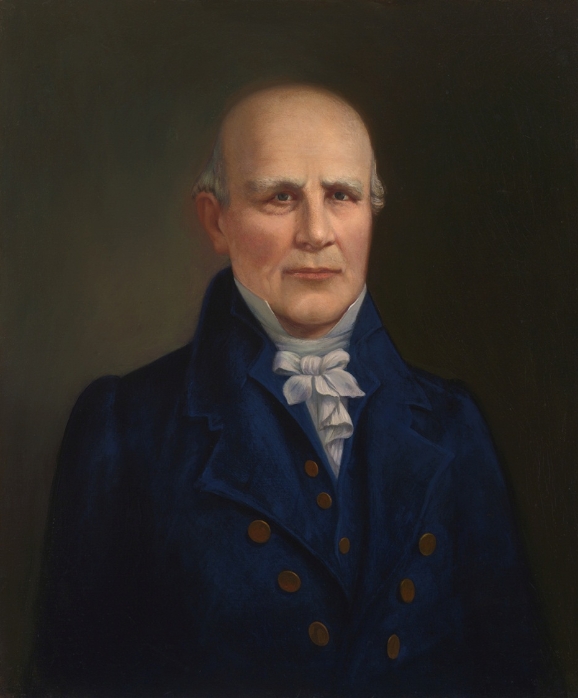
Elections to the United States House of Representatives for the 9th Congress were held at various dates in each state between April 24, 1804 and August 5, 1805. The Congress first met on December 2, 1805. The elections occurred at the same time as President Thomas Jefferson's re-election.
Alexander Wilson was a U.S. Representative from Virginia.
The United States Senate elections of 1804 and 1805 were elections that expanded the Democratic-Republican Party's overwhelming control over the United States Senate. The Federalists went into the elections with such a small share of Senate seats that even if they had won every election, they would have still remained a minority caucus.
The 1802 United States House of Representatives elections in New York were held from April 27 to 29, 1802, to elect 17 U.S. Representatives to represent the State of New York in the United States House of Representatives of the 8th United States Congress.
The 1804 United States House of Representatives elections in New York were held from April 24 to 26, 1804, to elect 17 U.S. Representatives to represent the State of New York in the United States House of Representatives of the 9th United States Congress. At the same time, a vacancy was filled in the 8th United States Congress.
The 1806 United States House of Representatives elections in New York were held from April 29 to May 1, 1806, to elect 17 U.S. Representatives to represent the State of New York in the United States House of Representatives of the 10th United States Congress.
Elections to the United States House of Representatives in Pennsylvania were held on October 9, 1804 for the 9th Congress.

The majority requirement was met in all 17 districts in the 1804 elections.
A special election was held in Massachusetts's 12th congressional district on September 17, 1804 to fill a vacancy left by the resignation of Thomson J. Skinner (DR) on August 10, 1804
Initially, Cowles Mead (Democratic-Republican) was declared the winner of the 4th seat. The votes from Camden, Liberty and Tatnal counties were not received in time and were originally not counted. When it was later decided to count them as valid, it resulted in Thomas Spalding (Democratic-Republican) overtaking Cowles Mead for the fourth and final seat by 39 votes. Spalding was then given the seat in place of Mead.
A special election was held in Delaware's at-large congressional district on October 1, 1805 to fill a vacancy resulting from the resignation of James A. Bayard (F) upon election to the Senate. Bayard had earlier served in the House in the 5th, 6th, and 7th Congresses before being narrowly defeated for re-election in 1802 by Caesar A. Rodney, whom he, in turn, defeated in 1804.
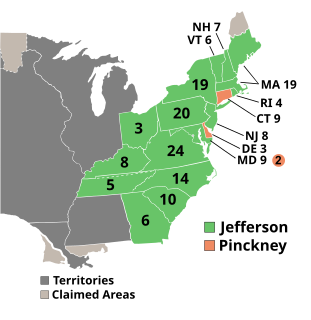
The 1804 United States elections elected the members of the 9th United States Congress. The election took place during the First Party System. The Democratic-Republican Party continued its control of the Presidency and both houses of Congress.
